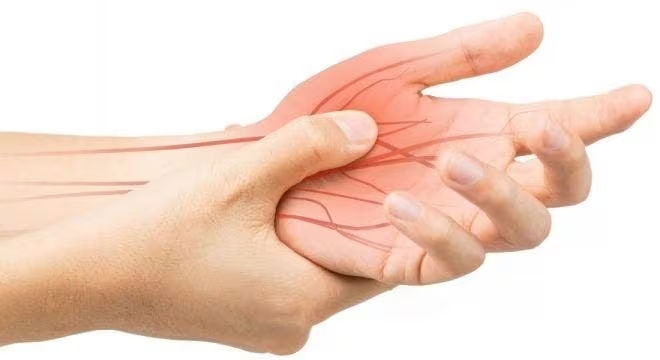Neuropathy: The silent warning that affects millions — and can be detected early
- Nervalis Editorial Team

- 6 days ago
- 2 min read
A study by the University of Chicago revealed that approximately 13.5% of the American population shows signs of peripheral neuropathy —a condition that affects the nerves and can cause pain, numbness, or loss of sensation, especially in the hands and feet.
This number is staggering: it means that more than one in eight adults may have the condition, often without knowing it. And it's precisely early diagnosis that makes all the difference in avoiding serious complications.

Why is identifying neuropathy early so important?
1. Prevents irreversible damage.
Initially, neuropathy usually manifests with mild symptoms: a slight tingling, pins and needles sensation, or numbness in the feet. If left untreated, it can progress to loss of sensation , ulcers , infections , and, in more severe cases, even amputations . Detecting the problem early can stop the progression of the disease and preserve quality of life.
2. Improves control of the causes.
Neuropathy can have many causes—diabetes, obesity, alcoholism, nutritional deficiencies, kidney disease, use of certain medications, or exposure to toxins. When diagnosed early, the doctor can treat the underlying cause , preventing nerve damage from progressing.
3. Reduces pain and suffering.
Neuropathic pain is described by many patients as burning, stabbing, or stabbing—symptoms that interfere with sleep, mood, and daily activities. Early detection and treatment helps better manage pain and maintain physical and emotional well-being .
Who is most at risk?
People with diabetes or pre-diabetes
Elderly people, especially those over 60 years of age
Those who have metabolic syndrome (high blood pressure, high cholesterol, excess weight, altered glucose levels)
Regular alcohol consumers
People with vitamin deficiencies (such as B12)
Individuals who use certain medications or have had exposure to toxic substances
Even people without diabetes can develop neuropathy — a finding that surprised researchers at the University of Chicago.
Pay attention to the signs
Numbness or tingling in the hands and feet
Feeling of “walking on cotton wool”
Burning, stabbing, or mild shock-like pain
Wounds that take a long time to heal
Loss of balance or frequent falls
These symptoms should not be ignored . What seems like a temporary symptom could be the beginning of neuropathy.
How to detect neuropathy early
Get regular checkups , especially if you have diabetes, are overweight, or have high blood pressure.
Ask for a foot sensitivity test (such as a monofilament test) during your doctor's appointment.
Report any symptoms , even mild ones — numbness is not a “thing of age.”
Adopt healthy habits: control your blood sugar, exercise, avoid tobacco, and reduce alcohol consumption.
Take care of your feet: check daily for wounds, blisters, or painful areas and wear appropriate footwear.
The final message
Neuropathy is much more common than you think, but it's also treatable —especially when caught early.
The sooner you act, the better your chances of avoiding pain, complications, and loss of mobility . Pay attention to your body's signals and seek medical advice at the slightest sign of change .
Detecting neuropathy early is an act of prevention, care and quality of life



Comments